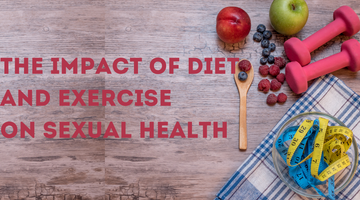
STDs are infections that are spread through sexual contact, including vaginal, anal, and oral sex. They can also be transmitted from mother to baby during pregnancy or childbirth. Some STDs, such as chlamydia and gonorrhea, can cause serious health problems if left untreated, including infertility, pelvic inflammatory disease (PID), and ectopic pregnancy.
Chlamydia is one of the most common STDs, and it can cause infertility in both men and women. In women, chlamydia can lead to PID, which can cause damage to the fallopian tubes and increase the risk of infertility. If a woman becomes pregnant while she has chlamydia, she is also at risk of having a premature delivery or a low birth weight baby.
Gonorrhea is another common STD that can cause infertility in women. It can cause PID, which can lead to damage to the fallopian tubes and increase the risk of infertility. In men, gonorrhea can cause infertility by causing damage to the testicles, which can lead to reduced sperm production.
Herpes is another STD that can have a significant impact on reproductive health. Herpes outbreaks can cause painful sores and blisters, and if a woman has an outbreak during pregnancy, she is at risk of transmitting the virus to her baby during delivery, which can lead to serious health problems for the baby.
Human papillomavirus (HPV) is another STD that can have a significant impact on reproductive health. Some strains of HPV can cause cervical cancer, and other strains can cause genital warts. HPV can also increase the risk of infertility, as well as other reproductive health problems such as preterm delivery and low birth weight babies.
HIV is a particularly serious STD that can have a significant impact on reproductive health. HIV can be transmitted through sexual contact, and if a woman is living with HIV and becomes pregnant, she is at risk of transmitting the virus to her baby. Women living with HIV are also at risk of having health problems during pregnancy, including preterm delivery and low birth weight babies.
The best way to reduce the risk of STDs and their impact on reproductive health is to practice safe sex, including using condoms and getting tested regularly. It's also important to get treated as soon as possible if you are diagnosed with an STD, as early treatment can help prevent long-term health problems.
Another important step is to get vaccinated against STDs, such as HPV and hepatitis B. These vaccines can help reduce the risk of infection and its potential impact on reproductive health.
In conclusion, STDs can have a significant impact on reproductive health, including infertility, PID, and other health problems. To reduce the risk of infection and its impact on fertility and pregnancy, it's important to practice safe sex, get tested regularly, get treated as soon as possible if you are diagnosed with an STD, and get vaccinated against STDs. By taking these steps, individuals can protect their reproductive health and reduce the risk of serious health problems in the future.





I stumbled across a comment while scouring the internet. I am suffering from erectile dysfunction, which was the same situation i found on the post , i ordered mine and same with me today am cured ,if you also need his assistance , You meant go through his website: https://bubaherbalmiraclem.wixsite.com/website Or reach via mail: buba.herbalmiraclemedicine@gmail.com or his Facebook Page ;https://www.facebook.com/profile.php?id=61559577240930 . AND THANK ME LATER
It is very good information about some myths regarding the curing of both HIV and hepatitis C infection. It was somewhat useful for many including me. It is a must-read blog to explore the new info about HIV and hepatitis C infection curable medicines. Keep it posting these kinds of informative blogs in the future!